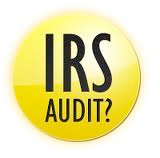For most people and most entities, the chances of being audited by the IRS in any one year are probably only one percent or less. But if you are selected and your situation is at all sophisticated or complicated, it is now a dangerous reality, for several reasons:
 First of all, the tax code throughout its thousands of pages contains many terms such as “intent”, “primary purpose”, “effect”, etc. Those are terms which we think refer to some thought process in your brain. Wrong. As far as the IRS is concerned, intent really means “what an auditor, when, as and if you are audited, decides your intent was, based on the paperwork he has in front of him at the moment”. And don’t blame the auditor. When the code says “intent”, a necessary part of his job is to try to figure out what yours was.
First of all, the tax code throughout its thousands of pages contains many terms such as “intent”, “primary purpose”, “effect”, etc. Those are terms which we think refer to some thought process in your brain. Wrong. As far as the IRS is concerned, intent really means “what an auditor, when, as and if you are audited, decides your intent was, based on the paperwork he has in front of him at the moment”. And don’t blame the auditor. When the code says “intent”, a necessary part of his job is to try to figure out what yours was.
Unfortunately, audits generally have to cover so much territory in so little time that an auditor may only be able to spend a minute or two on any given issue. This means that preparation and organization on your part before the audit are critical so the auditor can accurately and immediately grasp the substance of the particular transaction being examined. Being sure to document fully and unarguably the business reasons (as opposed to tax reasons) you entered into any transaction can make a huge difference.
The IRS requires your information not only to be correct, but to be documented to its satisfaction. if you show up with missing, incomplete, unclear or sloppy paperwork, you can quickly find yourself in a de facto “guilty until  proven innocent” environment, which is an unfamiliar world for most of us. Poor documentation is often the main reason why taxpayers have to pay large amounts of additional taxes, interest and penalties. It is also why an IRS agent will sometimes extend the audit to other entities and/or years. After all, you have proven yourself to be fertile territory. The IRS’ stated audit function is not to correct tax returns. It is to raise revenue. Forget that at your peril.
proven innocent” environment, which is an unfamiliar world for most of us. Poor documentation is often the main reason why taxpayers have to pay large amounts of additional taxes, interest and penalties. It is also why an IRS agent will sometimes extend the audit to other entities and/or years. After all, you have proven yourself to be fertile territory. The IRS’ stated audit function is not to correct tax returns. It is to raise revenue. Forget that at your peril.
I have gone through audits with taxpayers where the preparation to audit ratio was greater than 10:1. In other words, more than forty hours of preparation for a four hour audit. When significant tax consequences are at stake, this kind of preparation is only wise, and fairly typical.
Setting up your business correctly and having good procedures and controls not only will make an audit less terrifying, but will also reduce the odds of being selected for audit in the first place. When dealing with IRS audits, it’s not just the odds, it’s the possible consequences that need to be factored into your decisions of how to prepare.


